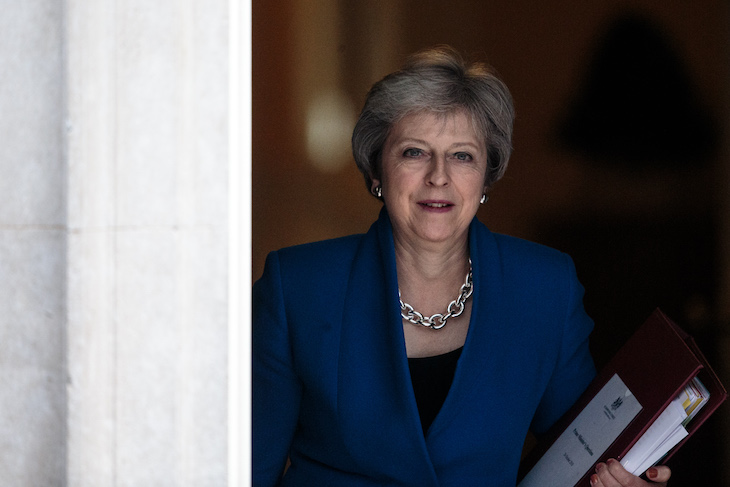Given relations with her own party, Theresa May will have been far more worried about the second half of Prime Minister’s Questions than the first. On the basis of the backbench questions that were asked, the session went pretty well. Only one Tory MP raised Brexit at all, and that was Jacob Rees-Mogg, who asked for assurances that the European Court of Justice would not get the final say on cases arising from the Brexit withdrawal agreement. May was able to tell the Chamber that this wasn’t true – though the Sun’s report this morning on the matter was pretty strong – and that was all for Brexit. Instead, her MPs asked a range of constituency-based questions and didn’t cause trouble, which bodes well for tonight’s 1922 Committee meeting.
As for the clash with the Leader of the Opposition, Jeremy Corbyn didn’t produce one of his best performances. Last week, he contrasted the Prime Minister’s claim that ‘austerity is over’ with the reality for a range of frontline services. It was very effective, so much so that Corbyn clearly decided to do the same this week. This time, though, the list of questions about different spending areas didn’t work, not least because it didn’t have the element of surprise that it did last week.
The Labour leader did make a strong start by using the ‘austerity is over’ line in contrast with a quote from the Tory leader of Walsall Council who had said that austerity was ‘alive and kicking’. Local government is indeed in uproar at the moment about the cuts it has had to and is expected to sustain, and Corbyn used two questions to show how unhappy Conservative council leaders are about this, before asking May to drop a planned £1.3 billion cut to local government.
But he then moved on to policing for his third question, then student nurses and Universal Credit. It would have been more effective for Corbyn to talk about the human consequences of the funding squeeze on councils by pointing to children’s services in crisis and so on. Then he could have moved the story on from local politicians complaining, which they have done for a while, to people suffering.
May survived the attacks tolerably, and managed to use an effective formula of words to deal with SNP leader Ian Blackford’s two questions on Britain’s relationship with Saudi Arabia. Blackford wants the government to end arms sales to the Kingdom in protest at the murder of Jamal Khashoggi. May defended the status quo, but Blackford did have a good point and one that is turning over in the minds of many in government: what does condemning in the ‘strongest terms’ actually mean in practice with an incredibly useful ally in the Middle East?
Still, that there were only hostile questions from the Opposition will have left May feeling that for the time being, the tide of anger in her own party appears to have gone out.
Now watch Katy Balls and James Forsyth’s PMQs debrief in this week’s Facebook Live. Join every Wednesday lunchtime at https://www.facebook.com/OfficialSpectator where James, Katy, and Isabel answer your questions.







Comments